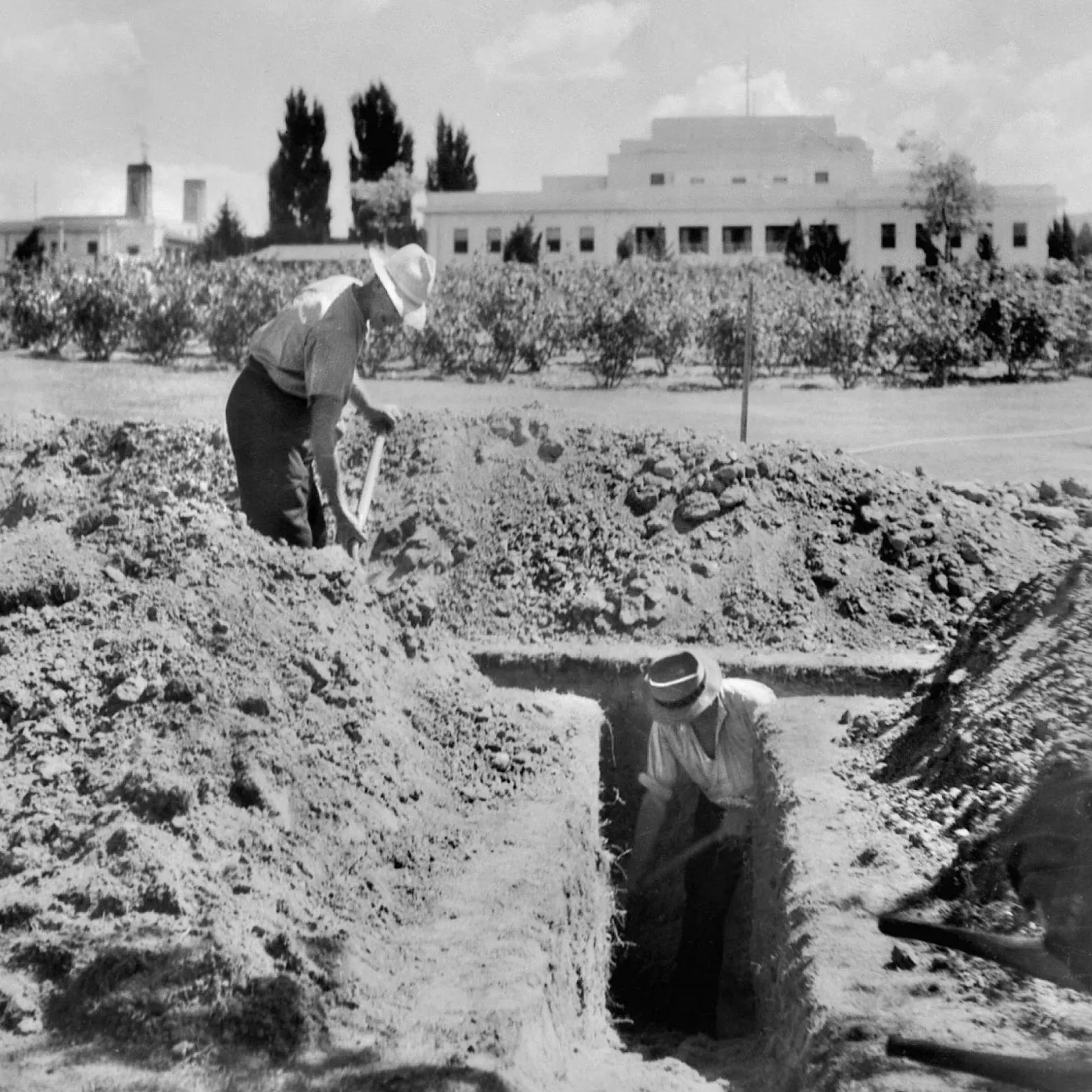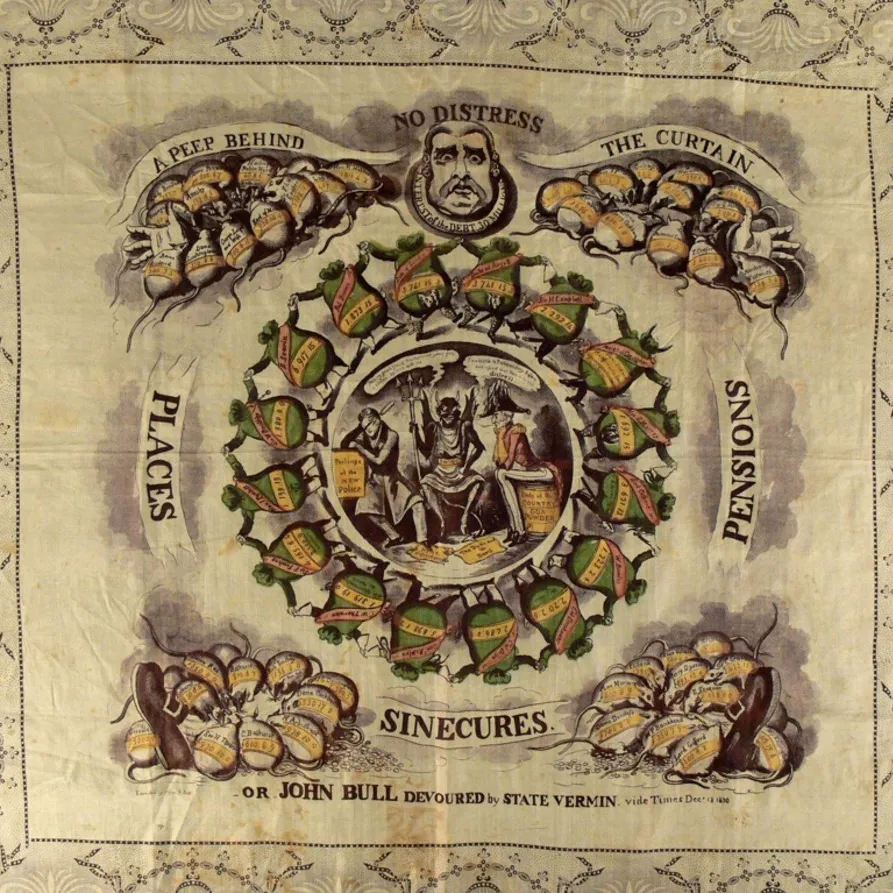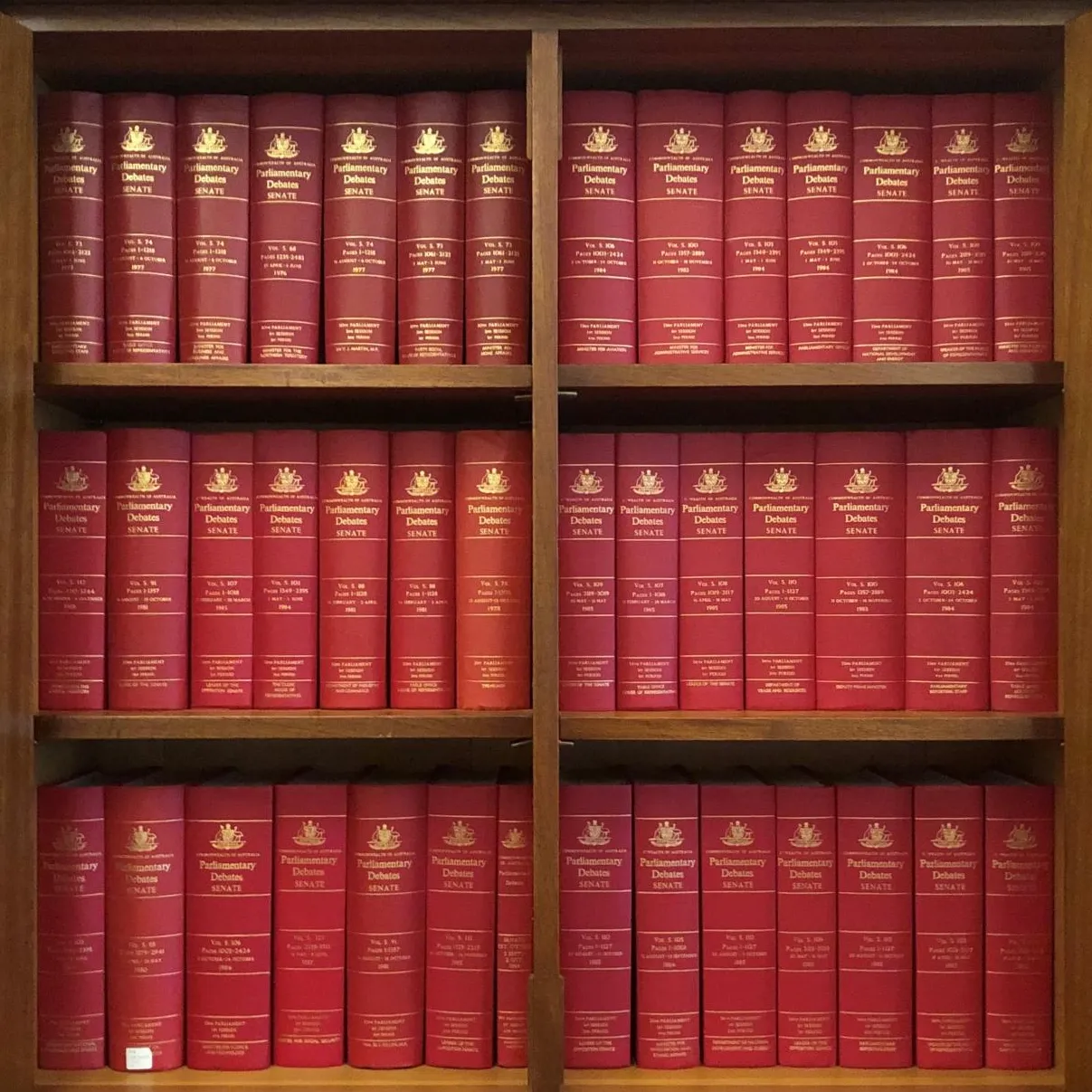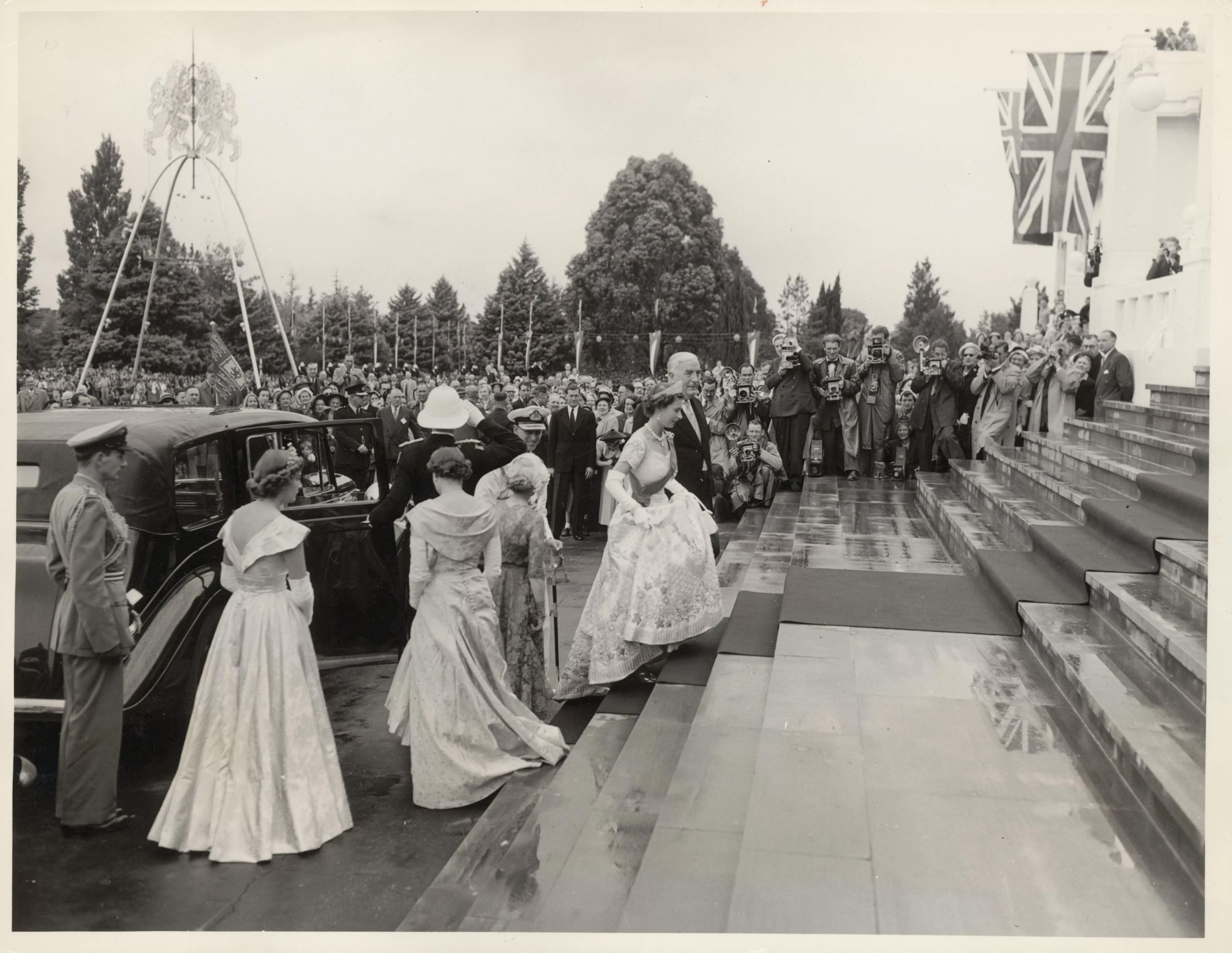Don’t come the raw prawn with me
- DateFri, 18 May 2018
Come with us on a journey back to the days of the Whitlam government. This is a long story, so you might want to grab a drink for this one, or a snack. Might we suggest whiskey and prawns?
Let's set the scene
It's the night of Tuesday 2 April 1974. Some people are at the movies seeing The Exorcist, others are at home watching This Day Tonight, or listening to Alvin Stardust's My Coo Ca Choo on the radio. But at Parliament House, a dramatic plot is unfolding.
Gough Whitlam's Labor government has been in power for about 18 months. The Opposition, the Liberal and National Country Parties, are convinced the government's program is dangerous. Reg 'The Toecutter' Withers, the tough Opposition Leader in the Senate, referred to the 1972 election result as 'temporary insanity' and the opposition is willing to go to great lengths to stifle the Whitlam government's agenda.
Labor want to pass national health insurance and electoral reform. They need a majority in the Senate to do so but they don’t have one. The opposition has the majority in the Senate and they have no intention of passing the bills. What can Whitlam do?
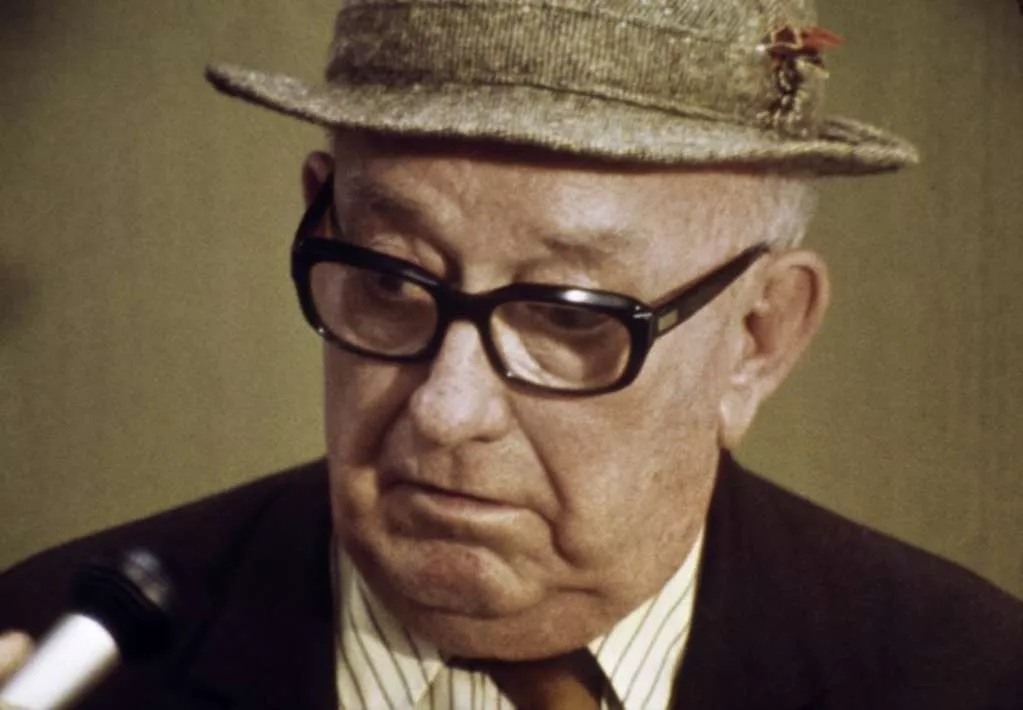
Whitlam sees his opportunity in Vince Gair, a Democratic Labor Party (DLP) Senator from Queensland. Gair is 73 years old, and a former Premier of Queensland. He was in the Labor Party during the divisive split over communism in the 1950s. The breakaway DLP has been a thorn in Labor's side ever since. Gair was its longtime leader, but has recently been removed and emotions are running high. 'You can all go to buggery!' he expressed, in relation to the DLP.
Complicated rules FTW
Scene set. Before we get onto the plot here are a few ground rules that will help you follow what happens next.
There is a senate election every three years when half the seats are up for re-election. This affects half of every state's senate seats.
If a senator resigns before their term expires, the parliament of their state will appoint a replacement up to the next election.
In April 1974 an election for the senate was coming up in about a months' time and Whitlam, an expert in constitutional law, comes up with a plan to use the upcoming election to his advantage.
If Gair were to resign, Whitlam thinks Labor would be able to win his seat and thus gain a majority in the Senate. It's a gamble, but it's his best shot.
Knowing Gair has strong Irish ancestry and a connection to Irish Catholicism, Whitlam offers him the tempting role of Ambassador to the Republic of Ireland.
It is an offer too good to refuse and Gair accepts the appointment. The next step is to resign his Senate seat. On the morning of Tuesday 2 April, the newspapers carry the story of the appointment and everything is set for Whitlam’s master plan.
Still with us? There's more.
There's always paperwork
State governors issue writs for the senate election and the governor acts on the advice of the elected government of their state.
In Queensland, the government is led by Premier Joh Bjelke-Petersen. Bjelke-Petersen detests Whitlam. His state is the only one in which the National Country Party is the senior coalition partner to the Liberals, and this makes him a giant inside his own party. Knowing about the imminent Gair appointment, the Coalition comes up with a plan of their own.
If Gair's resignation can be delayed until after the writs have been signed and delivered then only five places will be up for election, not the six that Whitlam is hoping for. Bjelke-Petersen, as Premier, can control the timing of the paperwork and, if all goes to plan, will be able to appoint a new senator in Gair's place, one just as hostile to Whitlam and Labor as he is.
There's just one issue. They must prevent Gair from resigning before Queensland's governor can issue the writs.
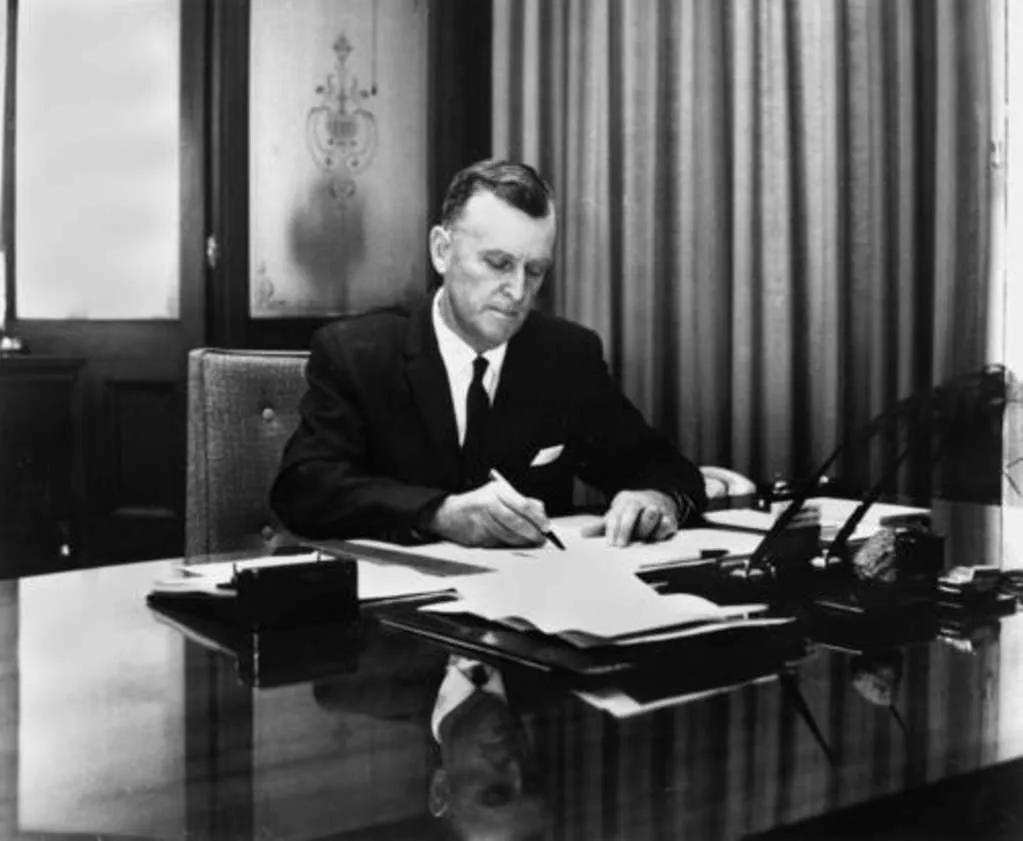

Prawn to be wild
Flash forward to Tuesday evening. The stage is set, the players are ready. Enter Senator Ron Maunsell. Maunsell is a National Country Party member and, like Gair, is a Queenslander. Bjelke-Petersen has told him to distract Gair from going to the President of the Senate's office to submit his resignation.
Maunsell invites Gair to his office. He offers fresh prawns and whiskey.
What's taking so long?
Meanwhile in Brisbane, Bjelke-Petersen is pushing a complex administrative process through quickly and secretly. This isn't usually something that gets rushed, so it's difficult to do.
Back in Canberra everything is going to plan. But then, a spanner in the works. The division bells go off. There's a vote in the Senate Chamber and, with the numbers so finely-balanced, everyone's needed. Gair could take this opportunity to resign.
Maunsell decides to chaperone Gair in and out of the chamber. The two men leave Maunsell's office and go to the chamber to vote. Maunsell never leaves Gair's side. Labor senators are totally unaware of what's happening and, as far as Whitlam knows, his plan is working perfectly. But, it's not over yet.
Safe and sound?
Meantime in Brisbane, Premier Bjelke-Petersen is practically tearing his hair out. In order for the writs to be official, they need to be affixed with the Governor's official seal. The seal is inside a safe at Government House, and only one person has a key – and he's at his home in Sandgate. The premier, who has lost all patience, demands they send a cab to Sandgate to retrieve the key.
Finally, at 1.20am on Wednesday 3 April, an exhausted Bjelke-Petersen tells his parliament that the deed is done and the writs have been issued for five senate positions. Down south, in the chilly darkness of an autumn Canberra night, Gair and Maunsell pack up and leave Parliament House at 3am. The plan has succeeded. Gair's resignation has been delayed, there will only be five senate positions up for election, and Whitlam won't get his way.
Or will he?
Whitlam's plan may have been foiled, but he has an ace up his sleeve. The Senate has blocked legislation often enough to warrant a double-dissolution. Both chambers and all seats will be up for election. A week later on 10 April, Whitlam announces that the Governor-General has agreed to dissolve parliament. All Senate spots are up for grabs.
The Aftermath
The Australian newspaper dubbed it 'The Night of the Long Prawns', an historical reference to The Night of the Long Knives. Whitlam goes on to win the election, but still doesn't get the numbers in the Senate. But, that's another story.
Still in the public mind
To this day, we still talk about the Gair Affair. Why? The opposition used the Gair Affair as ammunition over the next 18 months, citing it as evidence of moral or ethical corruption in the government. It was one of the catalysts for the Coalition's decision to block supply in the Senate, which ultimately led to Whitlam's dismissal from office in November 1975.
The affair also showed the lengths to which the opposition would go to stop Whitlam. To this day, Whitlam supporters cite the whole affair as an example of conservative maliciousness.
There's clearly a lot of bad feelings to go around, and while it's certainly not the only dramatic incident of Whitlam's eventful term of office, it's one of the most famous and colourful.





